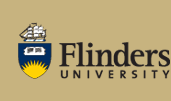
The Bachelor of Science in Computing and Digital Media requires three years of full-time study (or the equivalent part-time).
The course is offered by the School of Computer Science, Engineering and Mathematics, within the Faculty of Science and Engineering.
The minimum requirements for consideration for entry to all undergraduate courses are specified in detail in the University Entry Requirements.
Knowledge of either SACE Stage 2 (Year 12) Mathematical Studies or Mathematical Methods is assumed.
The course has been designed to provide graduates with:
The course provides the foundations that will underpin ongoing professional development, preparing graduates for further study or for a career in a computing related field or in other areas where the range of skills and knowledge acquired is needed or desirable.
On completion of the award, students will be able to:
On completion of the Bachelor of Science in Computing and Digital Media, students will be eligible for professional membership of the Australian Computer Society.
To qualify for the Bachelor of Science in Computing and Digital Media, a student must complete 108 units with a grade of P or NGP or better in each topic, according to the program of study below.
31.5 units comprising:
COMP1001 Fundamentals of Computing (4.5 units)
COMP1101 Information and Communications Technology 1A (4.5 units)
COMP1102 Computer Programming 1 (4.5 units)
COMP1401 Professional Skills in Computing* (4.5 units)
MATH1121 Mathematics 1A** (4.5 units)
SCME1002 Inter-Media (4.5 units)
SCME1003 Essential Multimedia (4.5 units)
Plus a 4.5 unit topic from across the University where entry requirements are met.***
*With the permission of the course coordinator students may select ENGL1001 Professional English or ENGR1401 Professional Skills for Engineers as alternatives while students from non-English speaking backgrounds, may be permitted to enrol in ESOL1101 English as a Second Language 1.
**Students without the prerequisite knowledge for MATH1121 Mathematics 1A, should enrol instead in MATH1701 Mathematics Fundamentals A in Semester 1 as their elective and then undertake MATH1121 Mathematics 1A in Semester 2.
***Students planning to transfer to the Bachelor of Computer Science should select either MATH1122 Mathematics 1B or STAT1412 Data Analysis Laboratory as their first year elective.
36 units comprising:
COMP2761 Database and Conceptual Modelling (4.5 units)
COMP2772 Web-Based Systems Development (4.5 units)
SCME2108 Multimedia Production (4.5 units)
SCME2201 Interaction Design (4.5 units)
Plus one of:
COMP2711 Computer Programming 2 (4.5 units)
COMP2741 Application Development (4.5 units)
Plus one of:
COMP2731 Software Engineering 1 (4.5 units)
SCME2004 Introduction to Digital Graphic Design (4.5 units)
Plus two of:
BUSN3027 E-Business (4.5 units)
COMP2762 Operating Systems (4.5 units)
COMP3712 Computer Programming 3 (4.5 units)
ENGR2782 Computer Networks (4.5 units)
ENGR2792 Software Engineering 2 (4.5 units)
LEGL3112 Regulating Technology (4.5 units)
SCME3006 From VR to Web 2.0 (4.5 units)
36 units comprising:
COMP3751 Interactive Computer Systems (4.5 units)
COMP3752 Computer Game Development (4.5 units)
COMP3762 Digital Media Technical Project (4.5 units)
COMP3771 Advanced Database (4.5 units)
SCME2202 3D Animation (4.5 units)
SCME2203 3D Effects (4.5 units)
Plus one of:
COMP3732 Enterprise Systems (4.5 units)
COMP3742 Intelligent Systems (4.5 units)
SCME3005 Digital Games (4.5 units)
Screen and Media option topic## (4.5 units)
Plus one of:
SCME2004 Introduction to Digital Graphic Design (4.5 units)
SCME2100 Media Policy (4.5 units)
SCME3007 Kids&##39; Media Cultures (4.5 units)
##Screen and Media options include any undergraduate topic with a SCME prefix 2xxx or above, subject to topic pre-requisites.
The Bachelor of Science in Computing and Digital Media may also be studied in a combined degrees program with a:
CRICOS Provider: 00114A | Updated: 12 Oct, 2010